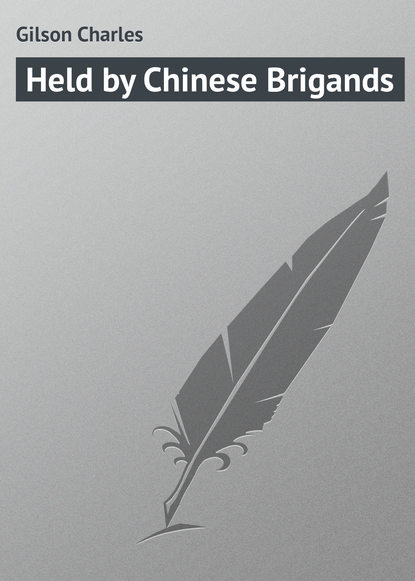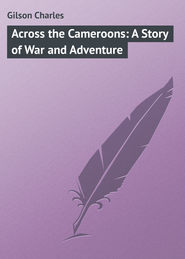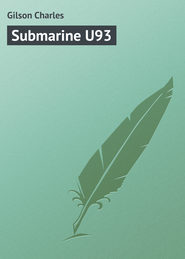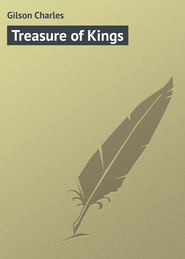По всем вопросам обращайтесь на: info@litportal.ru
(©) 2003-2025.
✖
Held by Chinese Brigands
Настройки чтения
Размер шрифта
Высота строк
Поля
At the end of an hour, Frank was beginning to feel fatigued; he was considerably out of breath. Ling, on the other hand, appeared to be in no way exhausted. They came to a hut-the habitation, in all probability, of some swineherd or peasant.
Ling kicked open the door, and they found within an old man, very disreputable and dirty, clothed in rags, sound asleep before the glowing embers of a charcoal fire.
Ling touched the sleeper upon the shoulder, and the old man sat up.
"The mighty Ling!" he exclaimed, the moment he saw his visitor.
"Peace," said Ling. "I come in peace, my friend. You need not be discomfited. I ask for nothing more than you can give me."
The old man, who had now risen to his feet, bowed low.
"A mandarin of the Blue Button has but to speak," said he. "Who is a mere drover of foul pigs to gainsay the word of so distinguished a personage? Is it food you desire, or water, or an hour's rest upon your journey? All I have, sir, is your own."
"I want that which will cost you nothing," answered Ling. "This will not be the first time that you have aided me. I will reward you-at a later date-if all goes well with me."
"May the gods assist you," said the old man, bowing again.
"I rely upon myself," said Ling. "Tell me, Cheong-Chau's men have come from the mountains. They are reported on the Sang River. Have you seen anything of them?"
"I have indeed," said the other. "There is a junk anchored about threeli west of the tower. I saw it this afternoon."
"Did you notice how many men were on board?"
"About five or six," said the old man.
"That agrees," said Ling, "with what I already know."
He remained silent for a moment, and then suddenly grasped Frank by an arm and thrust him through the door.
"Come!" he cried. "We have no time to lose."
The next moment Frank Armitage was on the road again, and throughout the early hours of the morning he continued to travel northward, in company with his grim and silent captor. Once the boy dared to speak, asking Ling where they were going; but he was at once ordered to hold his tongue.
"You need what breath you have," observed the Honanese. "I am not here to answer questions."
There was more than a little truth in the first remark, for the boy was obliged to keep up a steady jog-trot mile after mile, with never a halt or a rest by the wayside.
Presently they gained the crest of a chain of low-lying hills. The moonlight was sufficient to enable them to see for a considerable distance. Before them lay a valley-so far as Frank could make out-exceedingly fertile and picturesque, in which was a tall, thin tower, somewhat resembling a short factory chimney, except that at the top there was a narrow, circular balcony protected both from the rain and the powerful rays of the sun by one of those queer-shaped, overhanging roofs that are peculiar to Southern China.
Frank knew at a glance that this was the tower from which, in days gone by, it had been the custom of the Cantonese to throw little children, whose existence had grown irksome to their parents. At one time this barbarous and terrible custom was prevalent in the Middle Kingdom, until finally even the Chinese themselves revolted against the laws that permitted such a crime.
Flooded by the pure light of the moon, the valley appeared a perfect haven of rest. No one would have believed that such a beautiful spot had, in former times, been the scene of such terrible brutality. The tall tower shone like brass, and at its feet the broad waters of the Sang River flowed swiftly to the west.
Ling, still dragging Frank forward, descended the hill, and then turned to the right, towards a clump of trees. It was then, for the first time since they had left Canton, that, of his own accord, he spoke to his prisoner.
"Here is the place," he cried. "The Glade of Children's Tears. Here it is that Cheong-Chau's ransom money will be hidden."
Frank did not think it advisable to answer. Ling no longer held him by a wrist: such a precaution was now unnecessary. Frank could not possibly escape.
For a distance of about a hundred yards they walked in the heavy shadows under the branches of the trees, which were thick with leaves. And then, quite suddenly, they came once again into the bright moonlight, to find themselves confronted by a scene which was both grotesque and picturesque.
In ancient times the place had evidently been the site of a temple, of which only the ruined walls, a few stone steps and several flagstones remained. Here and there, lying upon the ground, overgrown by weeds and underwoods, were great broken, hideous idols, many of which were at least twelve feet in length. In the ghostly moonlight, it was like looking upon a scene which had been the battle-field of giants.
It was manifest that Ling knew the place well, for he walked straight up to a great circular stone, considerably darker in colour than the surrounding brickwork and rocks. Though this stone must have been of enormous weight, he rolled it away without difficulty. Beneath was a large hole. Going down upon his knees, the man struck a match, the light of which dimly illumined a vault as large as an ordinary room.
"Empty!" he exclaimed. "However, I did not expect to find the money here. It should arrive to-morrow, if my calculations are correct. I do not think that your friends will venture to waste time. Too much is at stake."
"My friends?" said Frank.
"Exactly," said the other. "I was so fortunate as to discover who you are. I confess that for days you deceived me. I never dreamt for a moment that the boy whose services I enlisted in Sanshui was a European. I congratulate you upon your accent and your knowledge of the Cantonese language. You speak it as well as I, who am a Northerner."
"And why," asked Frank, "have you brought me here?" This was the question he had long been burning to ask.
Ling shrugged his shoulders.
"You may have deceived me," said he, "but I am not altogether a fool."
And that, apparently, was all the reply he would condescend to give.
"I fail to understand," said Frank.
"Then you are very dense. Let me enlighten you: in a few hours, twenty thousand dollars will be hidden in this place. That money is intended for Cheong-Chau. Cheong-Chau will not receive a cent."
As he said these words, he rolled the stone back into its place.
"Cheong-Chau's junk lies up-stream," he continued, once again as if speaking to himself. "He had ten men with him. He took three with him to Ah Wu's opium den. Of those three, I have accounted for one at least, and I do not think the man I struck down with the lamp will be fit to fight for many a day. In any case, neither those three men nor Cheong-Chau himself are here. There are therefore only seven on board the junk. It is now about three o'clock in the morning. Six of those seven men are sound asleep. I propose to take the junk by storm."
"You mean," said Frank, "that you will do this-single-handed?"
"I have this," said Ling. "If necessary, I shall use it."
At that he produced the revolver he had taken from Yung How. He played with it for a moment in his great hands, and then put it back in his pocket.
"I shall require the junk," he added, "in order to take the treasure away. And even if I fail to get possession of it, I have you, my little one, who are so clever. You are worth, to me, at least another twenty thousand dollars."
Frank saw the truth as in a flash: once again he was a hostage. Ling no doubt intended to demand a second ransom as the price of the boy's freedom-perhaps his life. As the man remained silent for some minutes, Frank had the greater time to think the matter out. And the more he thought of it, the more was he obliged to admire the consummate subtlety of Ling, who had the faculty of grasping a situation without a moment's waste of time, estimating the salient factors at their proper value.
In the opium den, Frank's identity had been unmasked, and his life threatened in a period of time which could not have been more than thirty or forty seconds. And yet, in those brief and breathless seconds, Ling, in hiding behind the curtain, had summed up the position at a glance. He had seen that Cheong-Chau-who for the moment was blind with rage-was about to throw away a human life that was likely to be extremely valuable to himself. It was not a sense of humanity that had prompted him to save the boy. He had done so for his own personal ends.
"Come," he cried, "to the junk! I promise you I will flutter the dovecot. I will scatter them like ducks."
At that he strode forward, followed by Frank, amazed at the man's calmness and audacity.
CHAPTER XXII-OF THE CAPTURE OF THE JUNK
Ling walked in an easterly direction, keeping at a distance of about a hundred yards from the river bank. The morning was exceedingly still; nothing disturbed the silence but the ceaseless sound of the current of the river, stirring the tall reeds that grew in the shallow water. The Sang River, which at this place was about a hundred and fifty yards across, is one of the main tributaries of the Pe-kiang, which flows into Canton from the north. As Frank knew well, it was navigable for a considerable distance, even for sea-going junks. Presently Ling began to talk to himself in a low voice, but loud enough for the boy to hear.
"The sages have told us," he observed, "to think before we act. Men speak of the 'road of life.' That is a false metaphor. In life there are many roads; it is open to us to travel by one or by another. The junk will be anchored in midstream." He broke off, turning quickly to the boy. "Tell me, can you swim?"









